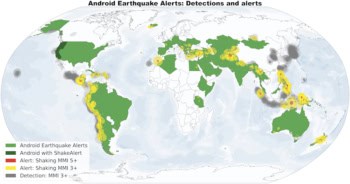The current definition of the kilogram - that it is equal to the mass of a piece of platinum-iridium alloy kept in a vault in Paris - is out of date and should be abolished, according to physicists in the UK, US and France. The researchers believe it is time instead to define the kilogram in terms of fundamental constants, like the other six SI base units. This is despite the fact that the proposed new definitions are less precise than that based on the platinum-iridium "international prototype".
Defining the kilogram in terms of the prototype – which is housed at the Bureau International des Poids et Mesures – means that the value of the kilogram changes if the mass of the prototype changes. This can happen if, for example, the object collects dust from the atmosphere, is cleaned or becomes damaged.
In contrast, the other six SI units are defined in terms of atomic or fundamental constants. For example, the metre is defined as the distance travelled by light in a vacuum in 1/299792458 of a second and the second itself is defined as the duration of 9192631770 cycles of the radiation emitted by a particular electronic transition in a caesium-133 atom. These definitions allow researchers to make measurements in SI units without the need for a single “master standard”.
Scientists have proposed two ways to redefine the unit of mass. The first is based on the Planck constant and requires a 1-kilogram mass to be supported against Earth’s gravity using a precisely measured magnetic force. The second technique is instead based on the Avogadro constant, and involves counting a certain number of atoms of a specific atomic mass. However, many believe that any new definition of the kilogram should not come into force until it at least equals the precision of the current definition – that is, 1 part in 108. So far, neither method has achieved better than 1 part in 107.
But Ian Mills of the University of Reading in the UK and colleagues at NIST in the US and the BIPM believe that the International Committee for Weights and Measures (ICWM), which is responsible for ensuring that units of measurement are uniform worldwide, should go ahead anyway and adopt one of the new definitions when it next meets in October 2007 (Metrologia 42 71).
Redefining the kilogram now would have immediate advantages, such as significantly reducing the uncertainties in the values of a large number of other important fundamental constants that are intimately related to the definition of the kilogram say the scientists. For instance, the precision of certain electrical measurements, such as the volt and ampere could be improved by a factor of 50.
A similar change was made in 1983, when the old definition of the metre – the distance between two metal scratches on a platinum bar – was withdrawn.



